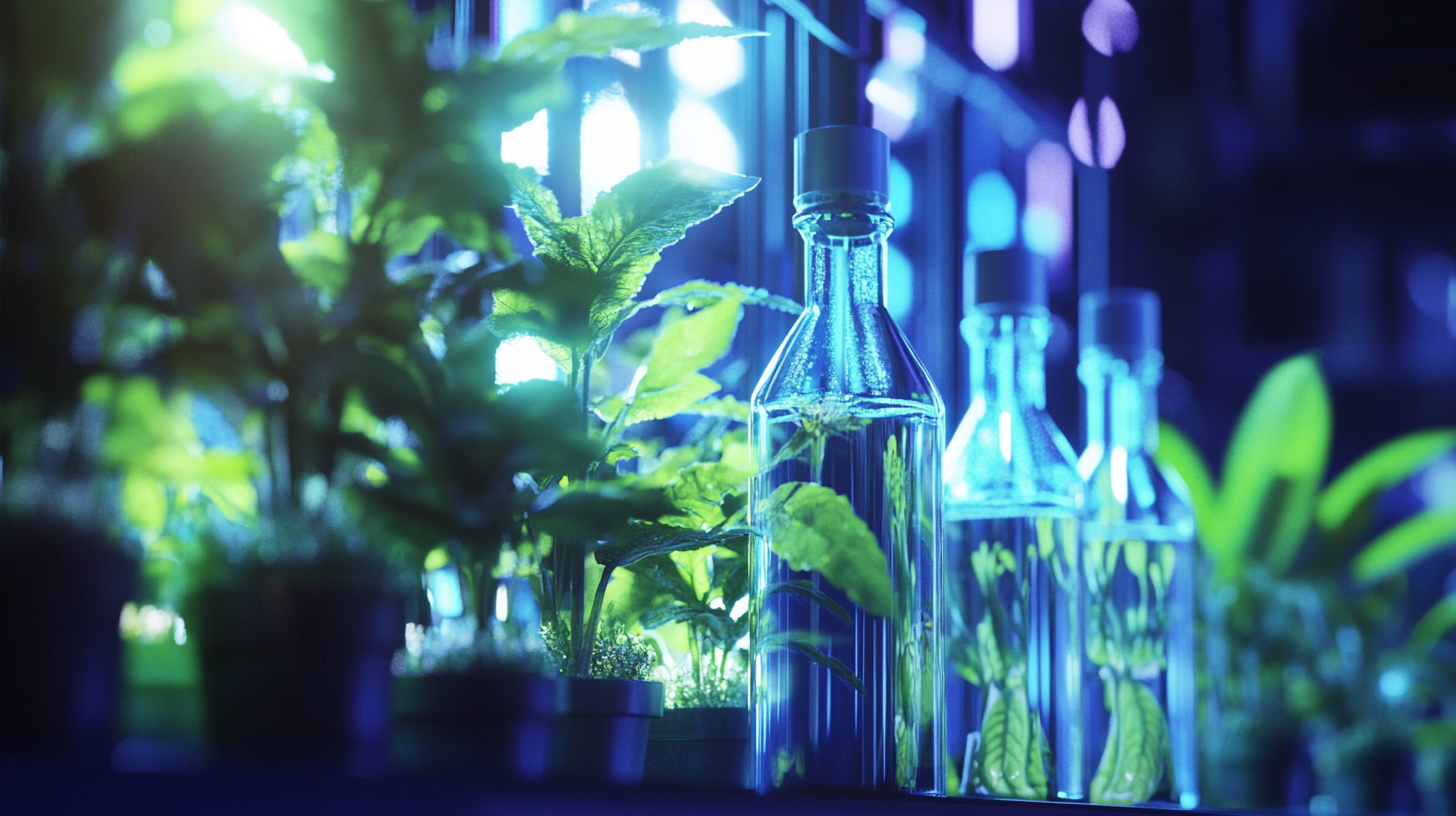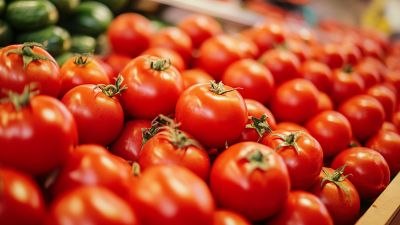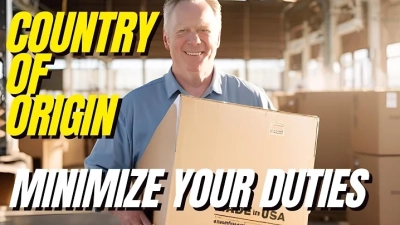 0551-68500918
0551-68500918 





You know, the world of global trade is getting pretty complicated, especially for the Chemical Weeding manufacturing industry. Right now, things are pretty tense with all the tariffs flying around—especially between China and the U.S. But you know what? Some companies, like Best Chemical Weeding, are really stepping up to the plate. They're using the latest tech and forming smart partnerships to keep pushing forward, despite these setbacks. It’s wild how the introduction of those reciprocal tariffs is putting pressure on a lot of industries, yet Chinese manufacturers have this knack for bouncing back and even growing stronger in the face of challenges. In this blog, we’re going to dive into how Best Chemical Weeding is tackling these tariff hurdles head-on with their innovative strategies. Plus, their dedication to sustainable practices and advanced production techniques isn't just about keeping up with regulations; it's also giving them an edge in the market. As the chemical weeding market keeps changing, understanding these trends is really important for anyone looking to jump on new opportunities.

Facing mounting tariff challenges, we at Innovation Meiland (Hefei) Co., LTD. are all about pushing the envelope with strategies that help us stay resilient and adaptable in the chemical weeding game. Our focus is on research and development, which means we're not just dreaming up new pesticide products and formulations but also fine-tuning our processes to keep costs down and stay competitive. We're truly committed to innovation, which helps us tackle those pesky tariff hurdles while still delivering top-quality solutions for our agricultural customers.
One solid approach we’ve got is investing in local manufacturing. By setting up production facilities closer to where we sell, we can dodge some of those tariff troubles and save on logistics costs, too. Plus, building partnerships with local suppliers really boosts our supply chain resilience.
And hey, let’s not forget about the power of ongoing innovation—especially when it comes to product differentiation. If we can whip up unique formulations that beat out the competition, we’ll really stand out in the market, which helps lessen the blow from tariffs. By putting these innovative strategies first, Meiland is not just surviving in the chemical weeding industry; we’re leading the way while handling challenges with a smart game plan.
You know, with tariffs on the rise, the chemical weeding manufacturing industry is really leaning into technology to boost production efficiency. It’s pretty cool how automation and smart manufacturing processes are helping companies to streamline their operations and cut costs, all while staying competitive. By embracing the latest tech—like machine learning and AI-powered analytics—manufacturers can really get a grip on their supply chains, anticipate market demands, and reduce waste. This shift isn’t just a clever way to deal with those pesky tariff issues; it’s also setting these companies up for long-term success.
And let’s not forget, these innovative technologies are supercharging product development and speeding up how quickly new weeding solutions hit the market. With some advanced R&D tools, they’re able to whip up more effective chemicals that meet the tough regulatory standards, but without breaking the bank. Plus, teaming up with tech startups and research institutions can spark some serious innovation, leading to new formulations and application methods that tackle the ever-changing challenges in agriculture. In this fast-paced world, using technology isn’t just a way to handle tariff challenges—it’s a smart move for the future of chemical weeding manufacturing.
The chart below illustrates the production efficiency of chemical weeding manufacturing over the past few years, highlighting the impact of tariff pressures and the adoption of innovative technologies.
The world of manufacturing is really changing, and companies are finding it tougher to keep up with all the shifting trade policies. A recent report from the World Trade Organization pointed out that global tariff rates have shot up by 23% over the last five years! That’s making a lot of manufacturers rethink how they handle their supply chains. For those focused on chemical weeding products, it’s not just about creating new products anymore—it’s also about shaking things up in logistics and sourcing.
You know, companies that take the initiative to adapt can really soften the blow from these tariffs. A study from the Institute for Supply Chain Management even found that businesses investing in tech and automation saw a whopping 30% boost in their operational efficiency! By tapping into data analytics and real-time tracking, manufacturers can get much better visibility in their supply chains. This means they can pivot quickly when tariffs and trade rules change, helping them stay compliant and, ultimately, be more resilient in this unpredictable market.
And let’s not forget, beefing up supply chains by diversifying sourcing strategies is key to avoiding reliance on just one supplier, especially in today’s shaky trade scene. The McKinsey Global Institute reported that supply chain hiccups can jack up costs by 10-20%, which is pretty significant. So it makes sense for manufacturers to look into local sourcing options. By backing domestic suppliers or nearshoring practices, chemical weeding manufacturers can really fortify their supply chains and stay competitive as trade policies continue to evolve.

You know, as tariffs shake things up in the Agricultural Chemicals world, Chinese manufacturers are really feeling the heat—there are both hurdles and opportunities out there. Take the pesticide market, for instance; it's expected to hit a whopping $83.48 billion by 2025. So, companies like Innovation Meiland (Hefei) Co., LTD. really need to navigate these complexities smartly. By zeroing in on research and development for innovative formulations and processes, Meiland Stock can not only cushion the blow from those tariffs but also up their game in the growing global scene.
One practical approach for Chinese manufacturers is to pour resources into unique product formulations that tick both the international regulation boxes and cater to local needs. There’s some promising data out there showing that eco-friendly and bio-based pesticides are catching on, with a growth rate of about 12% each year! If these companies align their product development with this trend, they’ll definitely hold a stronger position against those pesky tariff barriers.
A little tip—a solid strategy is to partner up with local farmers to really get a handle on their needs and tweak products to fit. Plus, keeping robust R&D going can help spot niche markets where fresh, innovative solutions can really take off, turning those tariff challenges into golden opportunities. And hey, engaging with industry experts and hitting up global expos could totally give them insights on market trends and help spark some strategic partnerships that are so crucial for growth.
| Market Segment | Opportunity | Innovation Strategy | Projected Growth (%) | Challenges |
|---|---|---|---|---|
| Organic Herbicides | Increased Demand for Eco-Friendly Solutions | Developing new formulations based on natural ingredients | 15% | Regulatory approvals and consumer awareness |
| Precision Agriculture | Cutting Costs with Technology | Integrating AI and IoT in Chemical Application | 20% | High initial investment costs |
| Urban Weeding Solutions | Growing Need in Urban Areas | Creating user-friendly products for residential areas | 10% | Competition with manual solutions |
| Biodegradable Chemicals | Sustainable Product Development | Research on biodegradable formulations | 25% | Material sourcing and production scale-up |
You know, with tariffs becoming such a headache lately, the chemical weeding manufacturing industry is really stepping up its game. They're diving into some pretty cool collaborative approaches that help them stay strong and flexible. By teaming up with all sorts of folks—think suppliers, distributors, and even research institutions—they're seriously cutting down on the financial hit from those pesky tariffs. Pooling their resources and sharing knowledge means companies can not only improve their products but also keep prices competitive, which is a win-win! Plus, when they collaborate on research, they can whip up more efficient and eco-friendly chemical weeding solutions. That’s super important for keeping up with market demands and not running afoul of environmental regulations.
And it doesn’t stop there! These partnerships can also open up fresh opportunities for shared logistics and distribution, which can really trim costs and help tackle the complexities that come with tariffs. By joining forces, manufacturers can even push for better trade policies and have a stronger voice when it comes to industry challenges. These alliances do more than just help the bottom line; they spark innovation by letting people swap ideas and best practices. As the landscape keeps shifting, you can bet that collaboration will be a huge part of overcoming tariff challenges and driving sustainable growth.
You know, the world of global trade has become way more complicated, which is throwing a bunch of tariff challenges at manufacturers in the chemical weeding sector. Companies are really feeling the pinch with rising costs and tough competition, so jumping on the sustainable practices bandwagon turns out to be not just a smart move but also a good way to tackle these economic issues. By focusing on eco-friendly manufacturing methods, these businesses can cut back on their dependency on imported raw materials and ease some of the stress that comes from unpredictable trade policies.
Plus, pushing for sustainable innovation can really make products more attractive and keep companies in line with the toughening regulations that are popping up everywhere. Manufacturers who dive into creating biodegradable or less harmful chemical formulas are going to find themselves in a better spot in the market. They’ll draw in eco-conscious consumers while skillfully dodging those tariff obstacles. It can also be a smart idea for companies to team up with local suppliers. This kind of collaboration builds resilience against those tariff impacts and helps create a circular economy that fits nicely with sustainability goals. In the end, really embracing sustainability in chemical weeding production not only helps tackle tariff challenges but also sets the stage for long-term success in a fast-changing world.

: Technology, such as automation and intelligent manufacturing processes, is being leveraged to streamline operations, reduce costs, and enhance competitiveness by optimizing supply chains and minimizing waste.
These technologies allow manufacturers to predict market demands, improve supply chain efficiency, and ultimately drive sustainable growth while countering the adverse effects of tariffs.
Advanced research and development tools facilitate the creation of effective, cost-efficient chemicals that meet strict regulatory standards, enabling faster time-to-market for new weeding solutions.
Manufacturers can strengthen their supply chains by diversifying sourcing strategies and investing in technology to improve logistics, operational efficiency, and compliance with trade regulations.
Studies indicate that manufacturers investing in technology and automation can see up to a 30% improvement in operational efficiency, allowing for better adaptability to changing tariffs and trade regulations.
Sustainable manufacturing practices help reduce reliance on imported materials and showcase a commitment to environmental responsibility, making companies more appealing to eco-conscious consumers amidst rising costs.
Collaborating with local suppliers can help manufacturers mitigate tariff impacts and create a more resilient supply chain, promoting a circular economy aligned with sustainable practices.
Maintaining regulatory compliance is crucial for manufacturers as it ensures they can operate legally within different markets and reduces risks associated with non-compliance during unpredictable trade situations.
Investing in biodegradable or less harmful chemical formulations can enhance product appeal and attract eco-conscious consumers, providing a competitive advantage in a market that increasingly values sustainability.
Embracing sustainability not only helps offset tariff challenges but also cultivates long-term viability and competitiveness in a rapidly evolving industry landscape.







